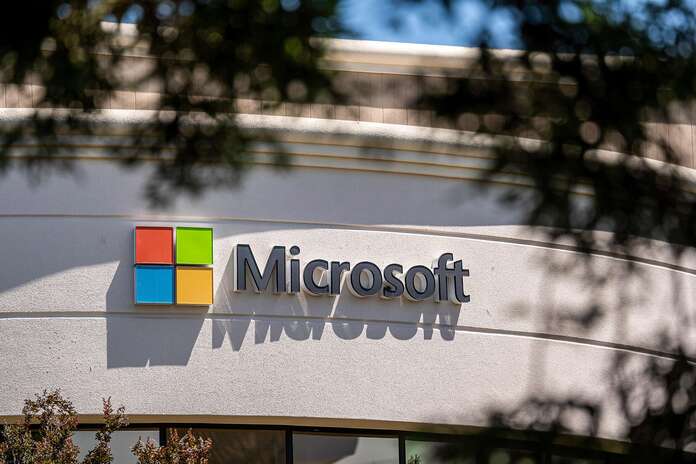After the closing bell on Tuesday, Microsoft (NASDAQ:MSFT) released its quarterly earnings, surpassing analysts’ expectations in both revenue and earnings per share. The tech giant reported quarterly revenue of $56.5 billion, exceeding the consensus estimate of $54.5 billion.
Adjusted earnings per share (EPS) came in at $2.99, outperforming the expected $2.66 per share. In the same quarter last year, the company reported adjusted EPS of $2.35.
In early trading on Wednesday, Microsoft’s shares surged by over 3%, with the company attributing the boost to higher-than-expected AI consumption driving growth in its cloud business.
Microsoft’s Intelligent Cloud segment, which includes its Azure business, generated $24.3 billion in revenue for the quarter, surpassing Wall Street’s revenue projection of $23.6 billion. Azure and other cloud services revenue saw a remarkable 29% increase in the quarter, exceeding Wall Street’s expectation of 27%.
Microsoft CEO Satya Nadella commented, “With copilots, we are making the age of AI real for people and businesses everywhere. We are rapidly infusing AI across every layer of the tech stack and for every role and business process to drive productivity gains for our customers.”
The company’s Productivity & Business Processes segment reported revenue of $18.6 billion, while the More Personal Computing segment brought in $13.7 billion. Analysts had expected revenue of $18.3 billion and $12.9 billion, respectively.
Over the past year, Microsoft has placed a significant emphasis on AI, making it a central part of its business strategy. This included a substantial $10 billion investment in ChatGPT developer OpenAI and the introduction of generative AI-enhanced versions of its Bing search engine and Edge browser in February.
Since then, the company has rolled out various generative AI-powered Copilot applications for Outlook, Windows 11, and Microsoft 365. These applications can summarize emails, assist in document drafting and presentation creation, and provide insights into Windows 11 features. Microsoft has plans to consolidate these Copilots into a single app in the future.
These investments are aimed at igniting a new growth phase for Microsoft, as businesses increasingly turn to artificial intelligence to streamline processes and enhance employee productivity.
In addition to its AI focus, Microsoft recently completed its $69 billion acquisition of Activision Blizzard, marking the largest acquisition in the company’s history. This move instantly positioned Microsoft as the third-largest video game company globally by revenue, trailing only Tencent and Sony. However, the Federal Trade Commission may still consider antitrust action against the companies involved in the deal.
Featured Image: Unsplash















